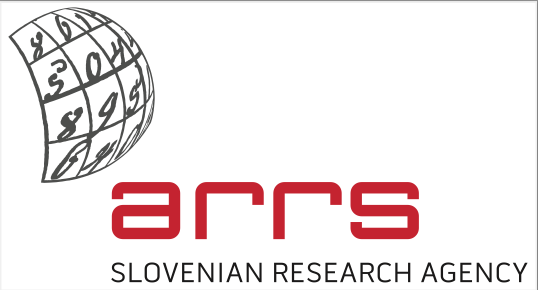Bringing Resource Efficiency to Smartphones with Approximate Computing
This research is funded by the Slovenian National Research Agency (ARRS) project number N2-0136 [SICRIS]

Project team:
- Dr. Veljko Pejović
- Dr. Octavian Machidon
- Dr. Alina Machidon
- Dr. Davor Sluga
- Ivan Majhen
- Amol Jawale
Description
The breakdown of Moore's law and Dennard scaling critically threatens the future growth of mobile computing. It indicates that further packing of computing resources cannot be sustained, should we wish to preserve the portability and energy frugality of our devices.
In this project we aim to set foundations for a new mobile computing paradigm termed - approximate mobile computing (AMC). AMC is based on our insight that, depending on the context of use, computation need not be perfectly accurate in order to fulfil a user’s needs.
Here is an example: a human activity recognition application can use only sporadic sparse sampling of built-in mobile sensors and still be able to recognise the activity, if the activity is “easy” to detect (e.g. still, sitting).
Bringing AMC to realisation requires that the underlying foundation - the technology for enabling accuracy-adaptable computation - is implemented. In the project we focus on:
- Identification of approximate computing techniques that are suitable for mobile devices, specifically, smartphones
- Implementation of selected techniques on low level of the mobile computing stack, such as compiler and supporting library level
- Exposing control knobs for the dynamic tuning of approximation, so that the result accuracy can be traded for resource usage at runtime
Publications:
- O. Machidon, J. Asprov, T. Fajfar, and V. Pejovic
Context-aware adaptation of mobile video decoding resolution
Multimedia Tools and Applications (2022) - A. Machidon and V. Pejovic
Deep Learning Techniques for Compressive Sensing-Based Reconstruction and Inference - A Ubiquitous Systems Perspective
Artificial Intelligence Review (2022). - A. Machidon and V. Pejovic
Enabling Resource-Efficient Edge Intelligence with Compressive Sensing-Based Deep Learning
ACM Computing Frontiers, May 2022 - T. Knez, O. Machidon, and V. Pejovic
Self-Adaptive Approximate Mobile Deep Learning
Electronics (2021) - M. Gjoreski, B. Mahesh, T. Kolenik, J. Uwe-Garbas, D. Seuss, H. Gjoreski, M. Lustrek, M. Gams, and V. Pejovic
Cognitive Load Monitoring with Wearables - Lessons Learned from a Machine Learning Challenge
IEEE Access (2021) - V. Pejovic, T. Matkovic, and M. Ciglaric
Wireless Ranging for Contactless Cognitive Load Inference in Ubiquitous Computing (open access)
International Journal of Human-Computer Interaction (2021) - O. Machidon, D. Sluga, and V. Pejovic
Queen Jane Approximately: Enabling Efficient Neural Network Inference with Context-Adaptivity
EuroMLSys workshop with EuroSys 2021 - A. Krasovec, D. Pellarini, D. Geneiatakis, G. Baldini, and V. Pejovic
Not Quite Yourself Today: Behaviour-Based Continuous Authentication in IoT Environments
Proceedings of the ACM on Interactive, Mobile, Wearable and Ubiquitous Technologies (IMWUT), 2020 - O. Machidon, T. Fajfar, and V. Pejovic
Watching the Watchers: Resource-Efficient Mobile Video Decoding through Context-Aware Resolution Adaptation
EAI MobiQuitous 2020 - M. Gjoreski, T. Kolenik, T. Knez, M. Lustrek, M. Gams, H. Gjoreski, and V. Pejovic
Datasets for Cognitive Load Inference Using Wearable Sensors and Psychological Traits
MDPI Applied Sciences (2020) - V. Pejovic, I. Majhen, M. Janez, and B. Zupan
RICERCANDO: Data Mining Toolkit for Mobile Broadband Measurements
Computer Networks (2020) - A. Cuculoski and V. Pejovic
Trading Energy for Accuracy in Mobile Interruptiblity inference
Ubittention workshop with UbiComp'20, Cyberspace, September 2020